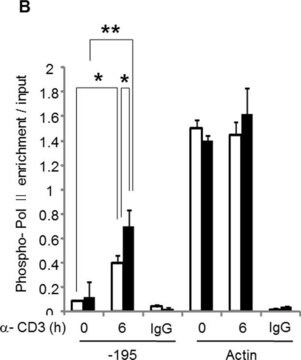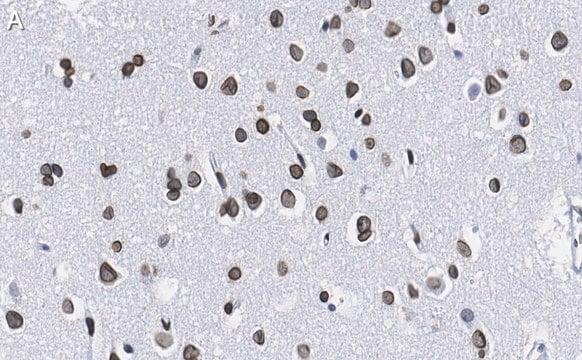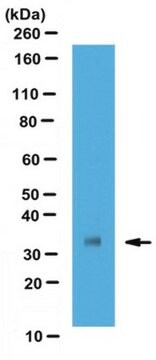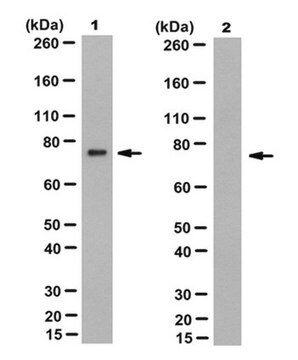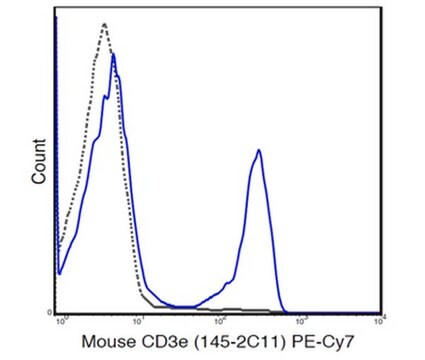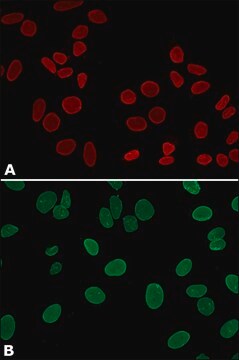MABT1340
Anti-Lamin A/C Antibody, clone 2A1
clone 2A1, from mouse
Synonym(s):
70 kDa Lamin, Renal carcinoma antigen NY-REN-32
About This Item
IF
IP
WB
immunofluorescence: suitable
immunoprecipitation (IP): suitable
western blot: suitable
Recommended Products
biological source
mouse
antibody form
purified immunoglobulin
antibody product type
primary antibodies
clone
2A1, monoclonal
species reactivity
mouse, monkey, hamster, human
packaging
antibody small pack of 25 μg
technique(s)
immunocytochemistry: suitable
immunofluorescence: suitable
immunoprecipitation (IP): suitable
western blot: suitable
isotype
IgG2bκ
NCBI accession no.
UniProt accession no.
target post-translational modification
unmodified
Gene Information
human ... LMNA(4000)
General description
Specificity
Immunogen
Application
Western Blotting Analysis: A representative lot detected Lamin A/C in culture supernatants of various cell lines (Data courtesy of Marie Lang, M.D., Stefan Schuchner, Ph.D. and Egon Ogris, M.D., Medical University of Vienna, Austria).
Immunocytochemistry Analysis: A 1:1,000 dilution from a representative lot detected Lamin A/C in HeLa cells.
Immunofluorescence Analysis: A representative lot detected Lamin A/C in the nuclear interior of HeLa cells (Data courtesy of Marie Lang, M.D., Stefan Schuchner, Ph.D. and Egon Ogris, M.D., Medical University of Vienna, Austria).
Cell Structure
Quality
Western Blotting Analysis: 0.2 µg/mL of this antibody detected Lamin A/C in HeLa cell lysate.
Target description
Physical form
Storage and Stability
Other Notes
Disclaimer
Not finding the right product?
Try our Product Selector Tool.
Certificates of Analysis (COA)
Search for Certificates of Analysis (COA) by entering the products Lot/Batch Number. Lot and Batch Numbers can be found on a product’s label following the words ‘Lot’ or ‘Batch’.
Already Own This Product?
Find documentation for the products that you have recently purchased in the Document Library.
Our team of scientists has experience in all areas of research including Life Science, Material Science, Chemical Synthesis, Chromatography, Analytical and many others.
Contact Technical Service
